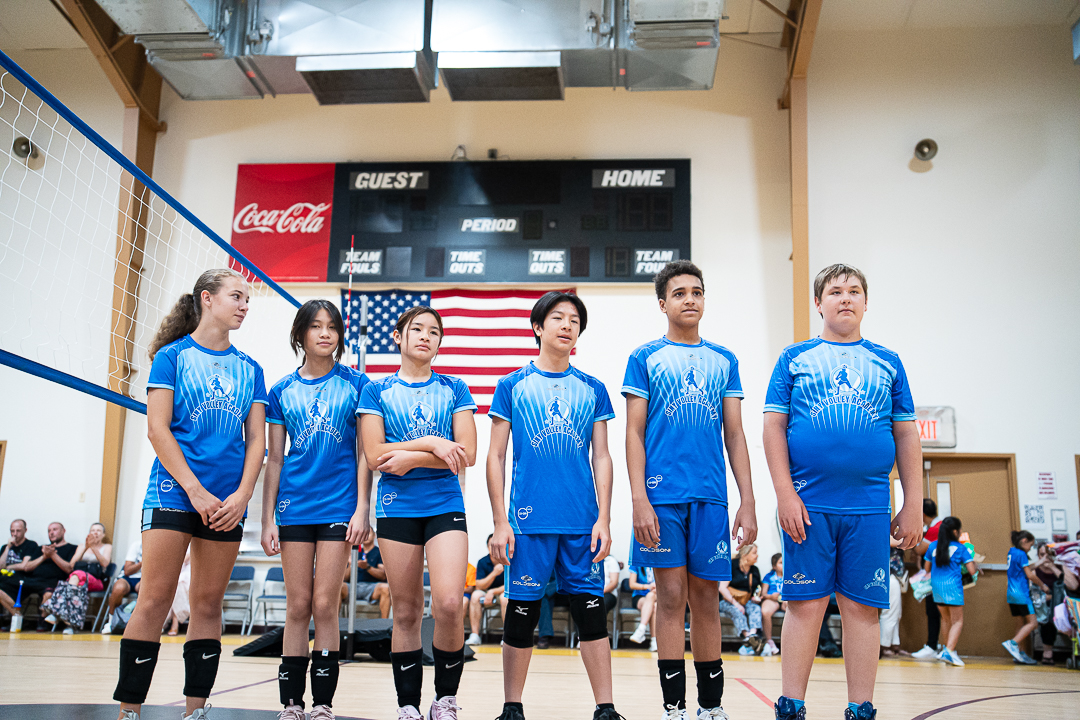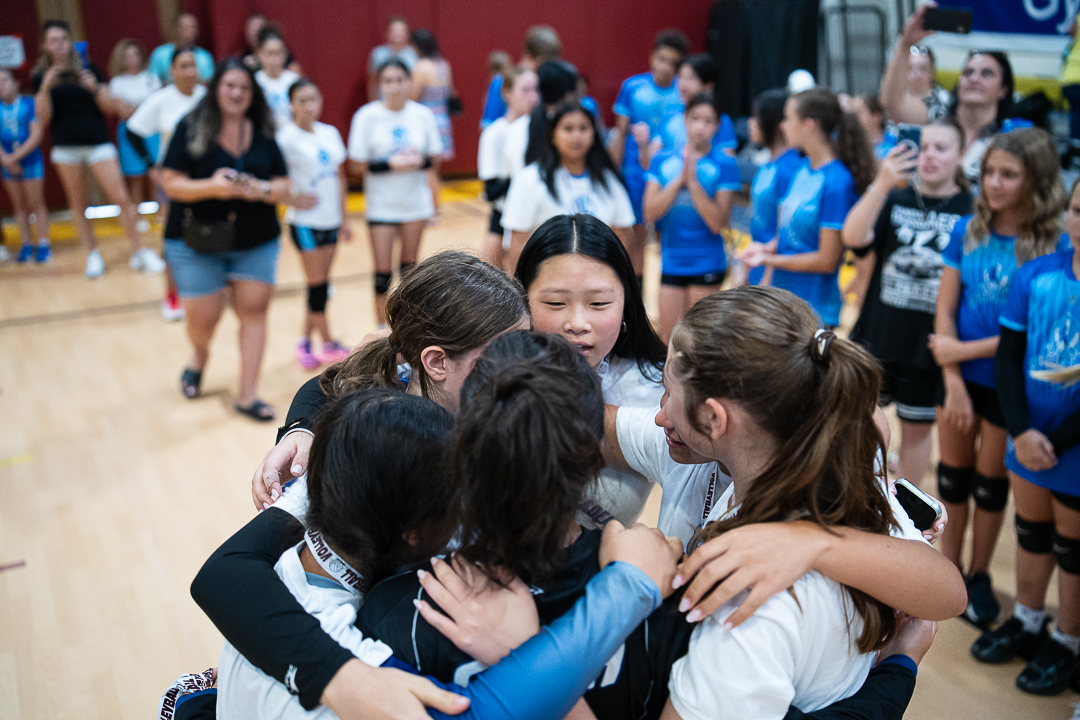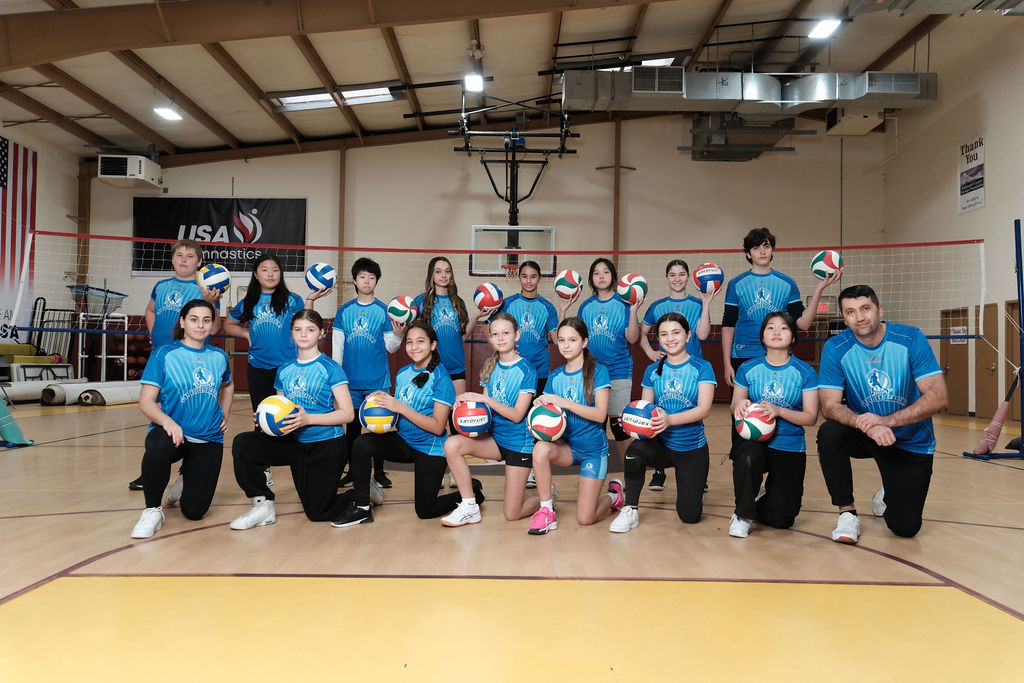Leadership in volleyball extends beyond just calling plays or motivating teammates during a match; it encompasses developing skills that resonate both on and off the court. This guide delves into how volleyball players can cultivate essential leadership qualities, enhancing their game while positively influencing their personal growth and team dynamics. By exploring actionable strategies and real-life examples, readers will discover how to harness their potential as leaders, build strong team rapport, and make impactful decisions that drive success, not only in sports but in everyday situations. Unlock the leader within and transform how you approach the game and life.

- Leadership in volleyball is crucial for team success, requiring a clear vision and ability to motivate teammates.
- Strong communication in volleyball fosters understanding, aiding in strategy and boosting team morale and cohesion.
- Trust among players is essential, built through reliability and transparency, enhancing team cohesion.
- Indoor volleyball emphasizes structured play, enhancing communication and strategic unity in larger teams.
- Beach volleyball develops adaptability and quick decision-making, crucial for dynamic environments.
Leadership on the volleyball court is crucial for setting a strong foundation for the team's success. Great volleyball leaders possess a clear vision, inspiring confidence and guiding their teammates toward a shared goal. This section covers how to develop this vision on the court and enhance team dynamics through effective leadership. By understanding these aspects, players can elevate their game both personally and collectively, forging a more cohesive group of athletes who work seamlessly together throughout the season.
To become a strong leader in volleyball, having a clear vision is essential. Vision in the context of the volleyball court refers to the ability to anticipate plays, understand the team's strengths and weaknesses, and guide the group towards strategic goals. A great leader must possess an acute awareness of the game and the ability to foresee potential challenges. This foresight allows them to position the team advantageously, ensuring they are ready for any scenario during a match. A leader's vision actively shapes the team's approach to the sport, directing focus to tactics that leverage the team’s strengths while minimizing weaknesses. Leaders on the court are often those who can creatively solve problems as they arise, making quick decisions that could pivot the game’s momentum in favor of their team. Developing such a vision involves regular practice, watching and analyzing game footage, and engaging in discussions with coaches and teammates to reinforce strategic knowledge. Aspiring volleyball leaders should also foster a strong mental game, remaining calm and collected under pressure. This level of cool composure enables them to visualize various plays and outcomes, thus contributing significantly to their team’s success throughout the season. Moreover, developing vision is not just about individual prowess—weaving in feedback from other athletes and the coach can improve strategy. As national teams often demonstrate, it’s the collaborative insight from various experienced individuals that builds a robust strategic framework. Over time, with consistent effort and dedication, any player can develop the vision needed to lead their team through the rigors of competitive volleyball successfully.
Empowering leaders on the volleyball court are adept at enhancing team dynamics to create a harmonious and effective playing environment. Team dynamics refer to the different ways players interact with each other, both on and off the court. A successful volleyball leader is someone who can harness diverse personalities to work toward a common objective, ensuring that all players feel valued and motivated. One crucial aspect of enhancing team dynamics is establishing strong communication channels. Leaders need to communicate clearly and consistently, articulating the team’s objectives and strategies in a way that empowers every player to perform at their best. Furthermore, leaders should foster an inclusive atmosphere where all players, regardless of their role or playing time, feel an integral part of the team's success. This involves recognizing and celebrating the contributions of each player, thus building confidence and encouraging a positive team spirit. The ability to bring together a group of athletes, each with their individual skills and strengths, and mold them into a cohesive unit is a hallmark of excellent leadership. Through understanding and synergy, the team dynamics can be markedly enhanced, allowing everyone to function seamlessly together during the game. Encouraging an environment where feedback is welcomed and utilized constructively creates an ongoing loop of improvement. By promoting openness, athletes learn to trust one another, leading to more successful collaborations on the court. Besides, a season-long commitment to uplifting team morale can lead to higher performance levels, reducing conflicts and increasing the efficiency of play. The legacy of strong leaders is evident when a team supports each other wholeheartedly, demonstrating a synchronized effort on the volleyball court that stands as a testament to well-developed leadership and exemplary team dynamics.
In the world of volleyball, leadership extends beyond mere technical prowess; it encompasses the ability to inspire, guide, and unify a team. Essential leadership skills for volleyball athletes include effective communication and fostering trust. These skills play a crucial role in enhancing team cohesion and success on the court. This section delves into the significance of communication as a key to a team's triumph and explores how volleyball leaders can build trust and a cohesive environment among their teammates.
Communication is pivotal to volleyball success, serving as a vital conduit for strategy implementation and team morale. A competent leader in volleyball understands the importance of clear, concise communication among athletes. This clarity ensures that each team member comprehends their role during intricate plays, allowing for swift adaptation during dynamic matches. Communication in volleyball isn't limited to verbal exchanges; non-verbal cues like hand signals or eye contact can significantly enhance in-game strategy execution. By nurturing open communication channels, leaders empower athletes to voice concerns and insights, fostering an environment where every player feels heard and valued. In addition to on-court communication, off-court interactions are equally important in building a team's success. By engaging in regular discussions, volleyball leaders can bridge gaps between personal and collective goals, reinforcing unity among diverse personalities. It’s not just about giving directives; effective leaders listen actively, ensuring feedback is integrated into future strategies to improve team performance. Strengthening these ties off the court can lead to enhanced trust and collaboration during competitive play. Recognizing the critical role chemistry plays in sports, volleyball leaders often organize team-building activities to reinforce communication skills. These activities, such as trust-building exercises or group strategy sessions, help players find common ground and boost team cohesion. Empowering each athlete to contribute communicative input transforms the group into a robust unit where everyone is invested in the same vision of success. In essence, communication isn’t just a skill—it is the driving force that can elevate a volleyball team from good to great, highlighting the leader's role in guiding their team strategically and positively impacting athletes' lives.

Trust is the cornerstone of any successful volleyball team, pivotal in fostering a cohesive unit capable of achieving great results on the court. A volleyball leader builds trust by consistently demonstrating reliability, integrity, and inclusivity. By setting a strong personal example, they encourage athletes to stay committed and aligned with team goals. Trust transcends individual skills; it’s about building an environment where players support each other, even in challenging situations. Leaders must often navigate diverse personalities and play styles, weaving them together into a harmonious and cooperative unit. To effectively build trust, a leader must prioritize transparency in their communication and decision-making processes. When players understand the reasons behind strategies and decisions, they are more likely to embrace the direction set by their leader. This transparency also encourages players to be open about their concerns or challenges, promoting an atmosphere of mutual respect. Moreover, fostering trust requires acknowledging and celebrating team successes while also learning constructively from setbacks. Recognizing each player's contribution, regardless of the role, nurtures a sense of belonging and enhances team morale. Team cohesion is further achieved by encouraging unity even off the court. Organizing social events outside regular practice sessions, such as team dinners or community service activities, can strengthen interpersonal bonds, translating directly into improved teamwork. Ultimately, it is this strong bond of trust and cohesion that empowers the team to work together seamlessly, achieving their collective objectives through collaborative effort and shared responsibility. A volleyball leader’s ability to integrate these elements of trust and cohesion sets the stage for both personal development and team success, reflecting the profound impact of leadership on and off the court.
Effective leadership in volleyball requires continual development of skills that enhance teamwork both on and off the court. To improve these abilities, players can draw on their indoor and beach volleyball experiences, recognizing distinct lessons from each environment. This section explores how these experiences can refine a player's leadership skills by fostering adaptability, strategic insight, and emotional intelligence. Training with diverse conditions and team dynamics not only polishes on-court skills but also lays the groundwork for robust leadership in life's varied contexts.
Both indoor and beach volleyball offer unique settings that are instrumental in developing strong leadership skills. Indoor volleyball, often played with larger teams, emphasizes structured play and strategic unity. Players must improve their communication skills within a larger group, learning how to effectively disseminate strategies and maintain cohesion during high-pressure games. This environment aids leaders in developing the ability to coordinate efforts and manage diverse personalities, a crucial skill for teamwork and leadership in any context. In contrast, beach volleyball, typically played in pairs, places a premium on adaptability and quick decision-making. The dynamic nature of the game, often impacted by external factors like weather, forces players to react swiftly and make in-the-moment strategic decisions. This experience enhances a player's ability to develop forward-thinking strategies and make skills intuitive. Such adaptability is invaluable not just in sports, but also in life and work, where conditions can shift unexpectedly. Engaging with both styles of volleyball allows players to transfer skills learned on the court to off-court scenarios. For instance, managing a variety of tasks or roles in work settings can mirror the leadership demands faced in volleyball games. The adaptability learned on sandy courts prepares players to tackle challenges head-on, fostering a mindset of resilience in the face of adversity. Moreover, learning from coaches in both environments encourages growth. Approaches may differ, but each type of coaching instructs in the art of leadership. Indoor coaches often emphasize collective strategies and structured discipline, whereas beach coaches might focus on individual empowerment and decision-making under pressure. By synthesizing the diverse lessons from these coaching styles, players can develop well-rounded leadership skills. Ultimately, the experiences gathered from both indoor and beach volleyball do more than enhance game performance; they enrich players' lives, molding them into adaptable, strategic thinkers capable of leading in any scenario.
Developing leadership skills in volleyball encompasses much more than honing physical abilities on the court. By fostering communication, teamwork, and strategic thinking, players can inspire and influence teammates both during matches and in everyday life. These skills transcend the sport, contributing to personal and professional success. Encouraging reflective practices, continuous learning, and involvement in team dynamics shapes well-rounded leaders. Embracing these development opportunities ensures that players don't just excel in sports, but also become impactful individuals ready to tackle various challenges beyond the volleyball court.

